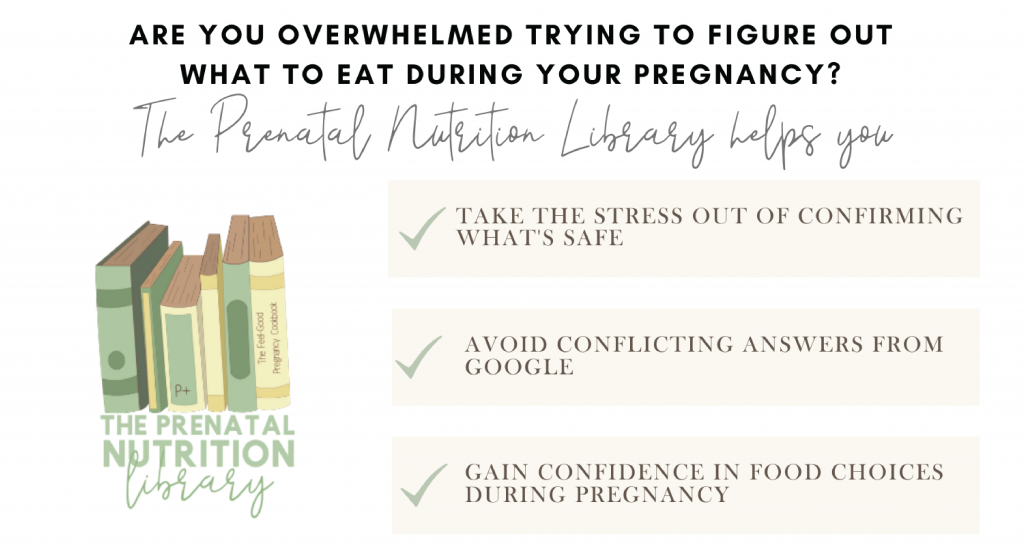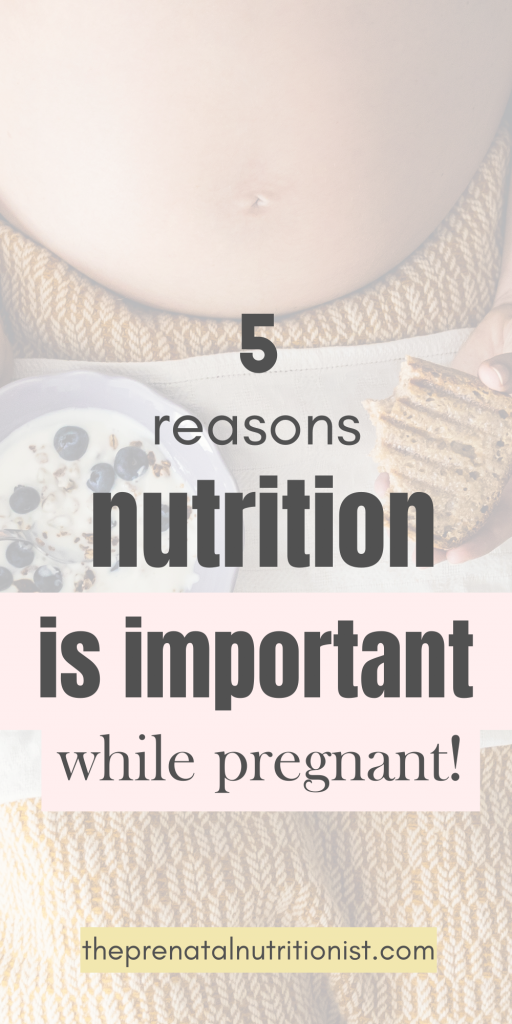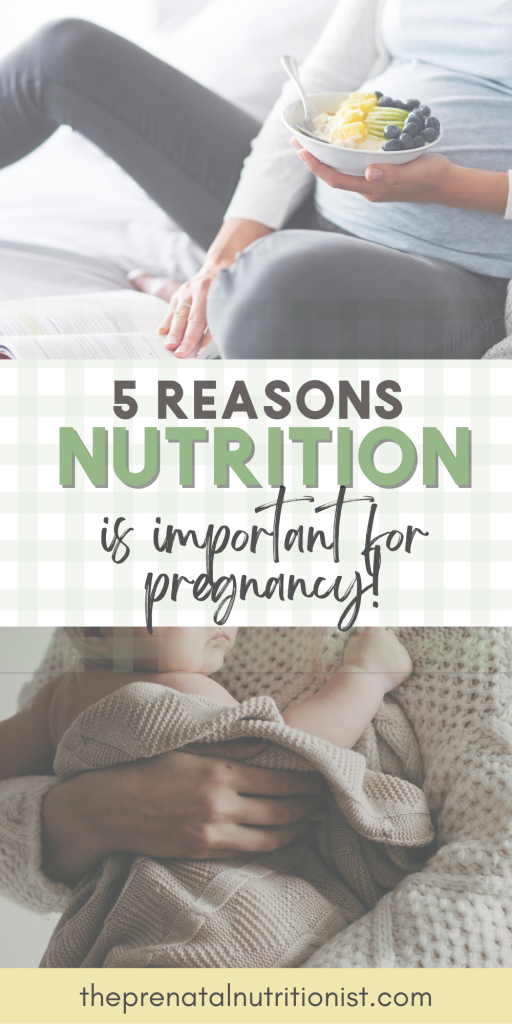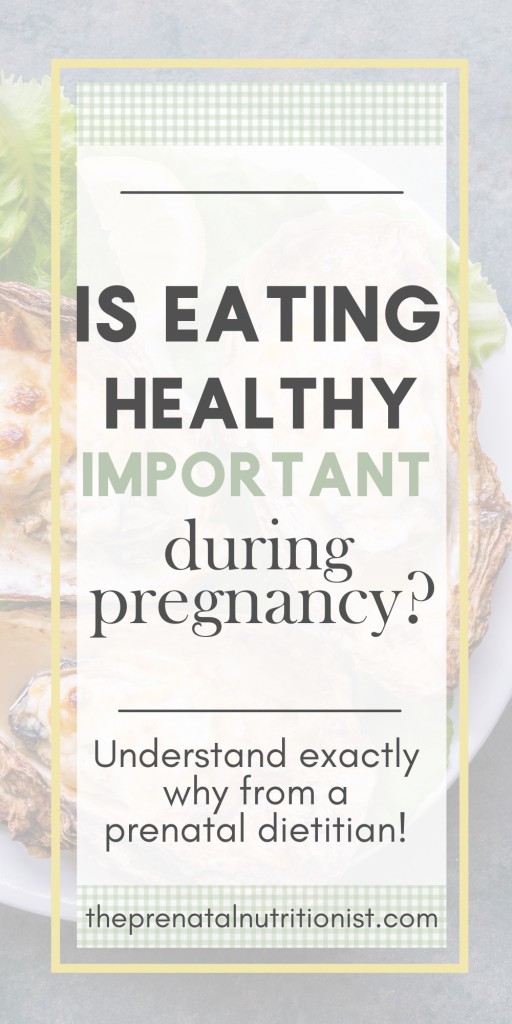
Good nutrition is when your body gets all the nutrients it needs to be at its best. You can get the majority of necessary macronutrients, vitamins, and minerals from eating well-balanced meals of whole foods like eggs, leafy greens, strawberries, and whole-milk yogurt.
A healthy, balanced diet is important for everyone at all stages of life, but it is especially important for pregnant women and their growing babies during pregnancy.
Most pregnant women understand that it is essential to include as many nutrient-dense foods as possible. But many women are left in the dark when it comes to understanding why certain nutrients are so necessary and which foods need to be avoided.
My goal is to help you maintain a healthy pregnancy for all 40 (plus or minus a few) weeks of pregnancy. A significant part of that is understanding the importance of a healthy diet. So, here are several reasons why good nutrition is vital during pregnancy.
Importance of Good Nutrition During Pregnancy
Good Brain Development
Research has found that a large amount of the nutrients + energy we consume during pregnancy goes to fetal brain development. It makes sense then that diet would play an essential role in ensuring optimal fetal brain development.
A balanced diet consisting of fruits, vegetables, healthy fats, seafood, eggs, nuts, seeds, and meats helps to support your baby’s growing brain. For an extra brain development boost, include fatty fish like salmon. High-quality fatty fish are a good source of omega-3 fatty acids, protein, and other brain-boosting nutrients.
Unfortunately, even a healthy, balanced diet can lack essential nutrients during pregnancy. Daily prenatal vitamins are a great way to fill in the gaps. Look for a prenatal supplement that includes at least some choline for the greatest benefit. DHA and choline are essential for your baby’s brain development.
Healthy Weight Gain
Good nutrition during pregnancy is also important to support healthy weight gain. First, let me start by saying while it’s true we can’t completely ignore weight gain during pregnancy, there’s no “best number” for everyone. Weight gain during pregnancy looks different for everyone and each pregnancy. I encourage a focus on meeting nutrient needs and the baby’s growth over focusing on the number on the scale.
Calorie needs are also individualized in the same way that each person’s weight changes will be different. Problems can arise from eating too little or too much during pregnancy. We need to eat enough to support mom and the growing baby! Practicing good nutrition means meeting nutrient needs and leaning into hunger cues. This makes it easier to ensure you get an appropriate number of calories for your body.
Reduced Risk of Birth Defects
Good nutrition is also essential for pregnant women because it reduces the risk of birth defects. What does “good nutrition mean”? A diet that meets nutrient needs prevents deficiencies, and incorporates foods you love is a good definition to start with!
Consuming adequate amounts of several nutrients, including iron and folate, lowers the risk of birth defects. These vitamins and minerals, as well as calcium, are essential for your baby’s overall development.
Additionally, folate, also known as vitamin B9, is a B vitamin that helps with the production of amino acids (protein) and DNA replication. Getting the right amount of folate in your daily diet before and during pregnancy reduces the risk of neural tube defects (a birth defect of the spinal cord and brain).
To reduce the risk of neural tube defects, doctors typically recommend at least 400 micrograms of folate each day before pregnancy and 600 micrograms during pregnancy. Natural sources of folate include green leafy vegetables, oranges, strawberries, nuts, and legumes.
Fewer Complications
Good nutrition during pregnancy has also been linked to fewer pregnancy complications. A healthy, balanced diet is associated with a reduced risk of preterm birth, preeclampsia, gestational hypertension, and gestational diabetes.
“Good nutrition” includes giving up alcohol. No amount of alcohol has been deemed safe during pregnancy. Alcohol intake during pregnancy increases the baby’s risk for fetal alcohol syndrome and other developmental issues. It could also lead to pregnancy complications like miscarriage, premature labor, and stillbirth.
While not nutrition related, it is crucial to not smoke during pregnancy has also been linked to an increased risk of pregnancy complications. Smoking can affect the flow of blood and oxygen to your baby. This can significantly impact the baby’s health and development. Smoking has been linked to low birth weight and pregnancy complications, including premature labor, vaginal bleeding, and premature placental detachment.
Increased Energy
It’s no secret that pregnancy takes a significant toll on your energy level. Fatigue is one of the most common pregnancy symptoms. This is especially true during the first and third trimesters.
Fortunately, food can help improve your energy levels and give you the energy you need to make it through your day. Instead of turning to coffee, try bumping up your protein intake if you’re feeling “run down” (more on coffee here).
Increasing your protein and iron-rich foods can give you an energy boost, but don’t be afraid to cut yourself slack and rest when you need it. Say yes to naps!
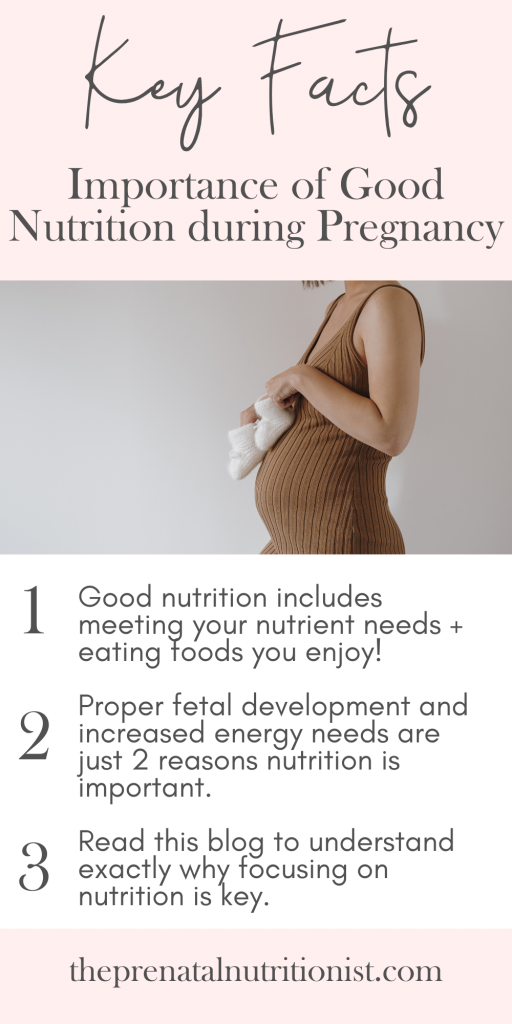
Good nutrition during pregnancy is essential for mom and baby!
For pregnant women, good nutrition is a diet composed of foods from all the macronutrients, including carbohydrates, protein, healthy fats, and plenty of fluids. Nutrition is only one part of living a healthy lifestyle, but it’s an essential component for both mother and baby. For more tips on practicing good nutrition during pregnancy, head to the blog.
If you’re interested in creating a healthy meal plan for nine months, check out our trimester meal plans inside The Prenatal Nutrition Library. There, you’ll find 30-day meal plans that include grocery lists for every trimester, so you don’t have to stress over figuring out how to meet your nutrient needs during pregnancy or creating new meal ideas.
